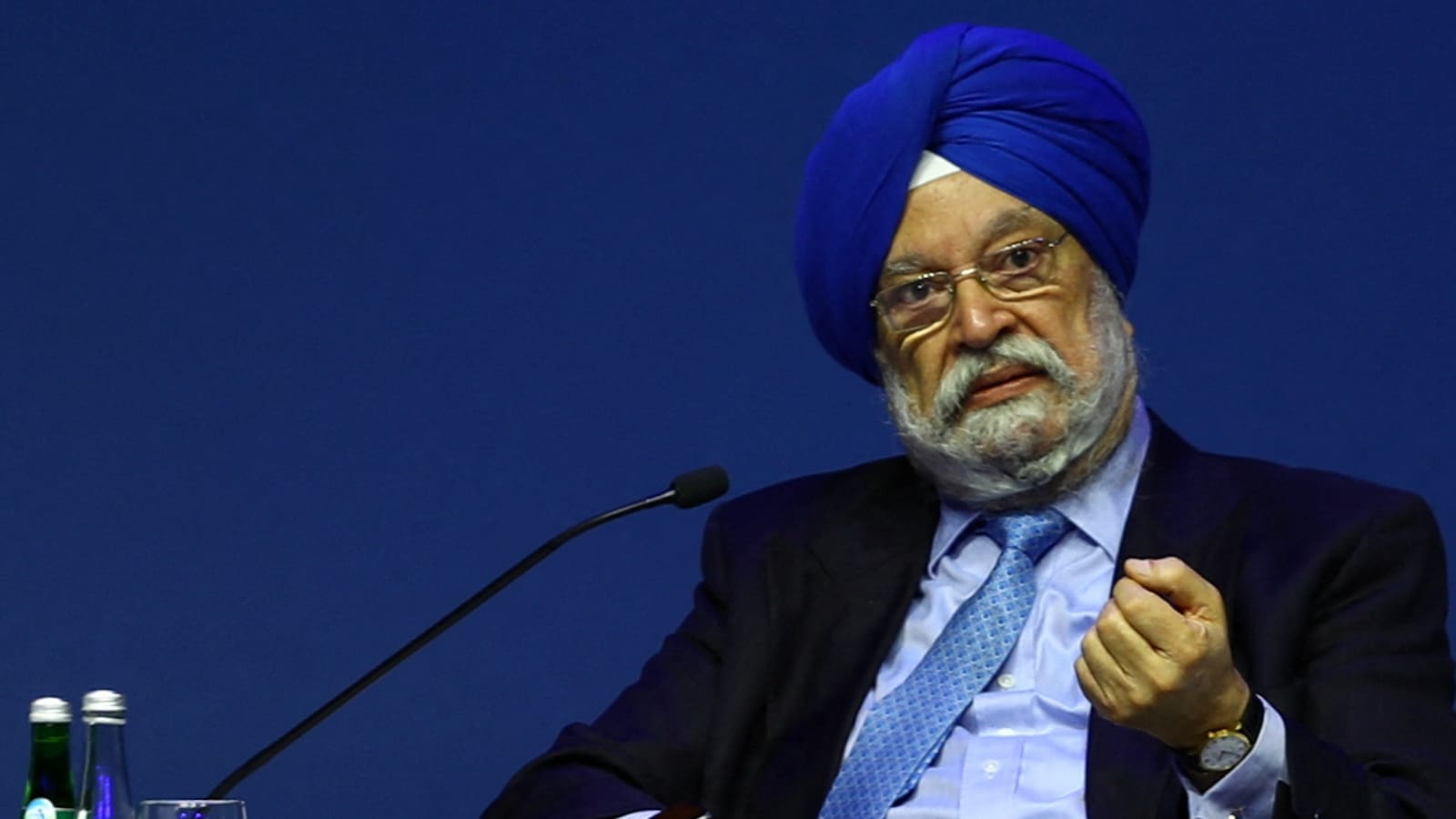‘Modi Govt Not Pressured’: Puri Says No Moral Conflict Regarding Russian Oil Imports
Hardeep Singh Puri, the Union petroleum and natural gas minister, during a discussion with CNN’s Becky Anderson said India is under no moral conflict to stop buying oil from Russia.
Puri also corrected the CNN anchor and said that it is not the government but the oil companies and economic entities who go out there in the global market to make the purchases.
Anderson asked if the government will feel pressured if the West tightens the oil export ban on Russia, to which Puri replied: “We have many backup plans, I don’t look at the way you are looking at it. We have healthy discussions going on with the US and Europe. We don’t feel any pressure, Modi’s government doesn’t feel the pressure.”
“There is no moral conflict. We buy whatever is available. I don’t do the buying, it’s the oil companies who do the buying,” Puri said.
The minister told the CNN anchor that the data being presented to him was not accurate and said that Iraq was India’s largest exporter of oil last month and India imported only 0.2% of its energy requirements from Russia.
“Russia is not the largest supplier of oil to India, Russia supplied only 0.2%. Now, it is one of the top four or five suppliers and in fact, the largest supplier last month was Iraq,” Puri said.
Puri also defended India’s purchases by saying: “Let me first correct your perspective. We ended the financial year 2022, the purchases of Russian oil were not 2 %, it was 0.2 %. Moreover, we still buy a quarter of what Europe buys in one afternoon.”
Puri’s remarks were similar to what his colleague Union minister of external affairs S Jaishankar said in April during his visit to Washington.
“If you’re looking at energy purchases from Russia, I’d suggest your attention should be on Europe. We buy some energy necessary for our energy security. But I suspect, looking at figures, our purchases for the month would be less than what Europe does in an afternoon,” Jaishankar said at that time.
Puri said that the government in India has a moral duty to its people. “We owe our moral duty to consumers, we have a 1.3 billion population and we have to ensure that they are supplied with energy, whether petrol or diesel,” he said.
The minister said the government reduced its revenue in order to make sure that the prices due to the ban on Russian oil imports didn’t shoot up prices.
“India will buy oil from wherever it has to for the simple reason that this kind of a discussion cannot be taken to the consuming population of India,” Puri said.
India has on several occasions pointed out that the government is accountable to the people when it comes to energy imports.
Puri also said that if Russian oil is removed from the energy markers then the prices could go up to $200. The CNN journalist then expressed concerns that India is becoming a backdoor for Russian oil into Europe.
The minister corrected the journalist by saying that some private sector companies were involved in this, not Oil Marketing Companies (OMCs).
“Who buys Russian oil, and where it is refined, we have nothing to do with that. The government doesn’t do the buying. The oil trade is conducted by economic entities,” Puri said.
The Union minister also said if there are any qualms within the EU members regarding Russian energy imports then the EU and the US shall initiate a conversation with India. Puri was reacting to the queries the anchor posted regarding the much-discussed price cap on Russian energy imports.
“We have a situation where Hungarian oil could come through the pipeline and it’s exempt from the so-called price cap. Russian oil goes to China through the pipeline, it is exempt, and Japan can buy it. I want to find at whom the price cap is aimed,” Puri questioned.
He also pointed out that there is limited consensus within the G7 on the price cap plan where the group is planning to impose a price cap on sea-borne oil exports.
“The proposal has not been fully spelt out. India will examine it, and respond according to its national interest. We will take a view and will discuss it with everyone,” he said.
It should be mentioned that many G7 members are unsure if the proposed price cap plan will work. Germany, according to reports by the Guardian and AFP, have questioned whether the scheme will be wise and effective.
Read all the Latest News here
For all the latest world News Click Here

